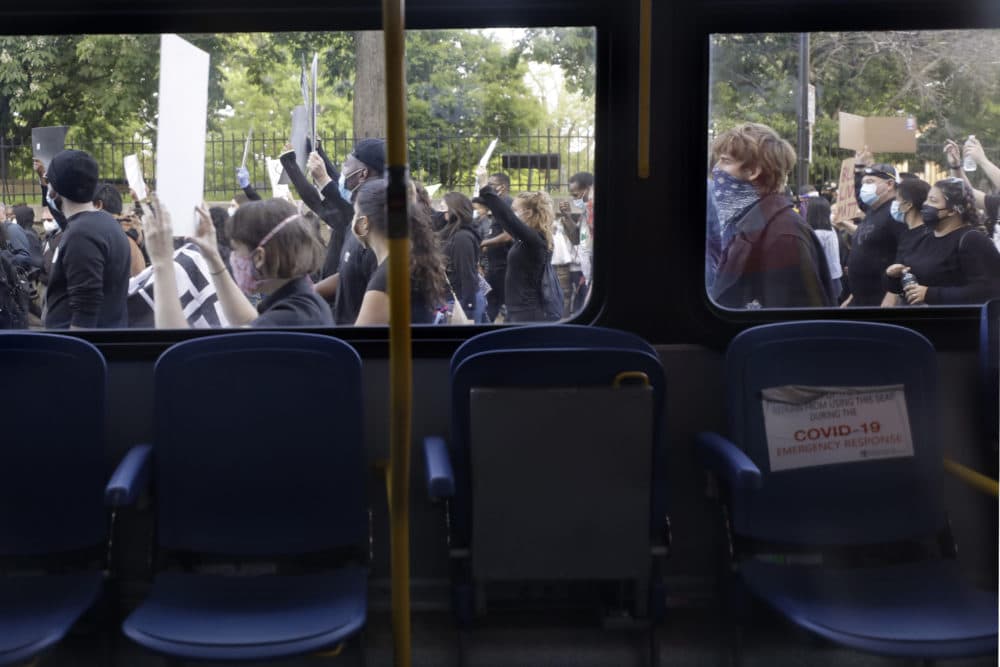Advertisement
MBTA Will Stop Busing Boston Non-Transit Police To And From Demonstrations

The MBTA said Friday that it will no longer bus any non-transit law enforcement personnel to and from protests.
The decision came at the direction of several members of the MBTA’s Fiscal and Management Control Board and goes into effect Friday.
The T said MBTA vehicles may still be used to transport Transit Police.
Members of the control board, established by Gov. Charlie Baker in the wake of a month of blizzards that crippled T service in 2015, objected to the practice Thursday night, according to a report in The Boston Globe.
Answering a question posed during an appearance on Friday, Gov. Charlie Baker said he expected the agency to comply with the board's order.
"We'll do what we need to do to make sure the resources get to where they need to go to help communities make sure that tonight, tomorrow, tomorrow night, Sunday, Sunday night, Monday, wherever it is, and wherever it has to be, that we're providing as safe an environment as we possibly can for the people who want to march and demonstrate, and the people who want to watch," he said.
Boston Police and State Police did not return messages seeking comment. But the State Police Association of Massachusetts (SPAM), the union representing troopers, lashed out at the MBTA and UMass Boston, which said police can no longer use the campus as a staging area.
"UMass’s and the MBTA’s actions are shameful and overtly pander to the false rhetoric and anti-police agenda of the few," the SPAM statement said. "More important, they fail to support our defense of the peaceful calls for change of the many. These actions place needless hurdles to the protection of life and property, and they put the public at large at risk. Courageous leadership from the top down is needed to remedy this unsafe and unnecessary impediment to the timely delivery of professional police services."
Advertisement
This isn't the first time The T has been in the spotlight in the past eight days, as citizens across Massachusetts continue to gather to decry the death of George Floyd, who was killed by a Minneapolis police officer.
As a protest on Boston Common concluded around 9 p.m. Sunday, police and protesters began to clash, and the T shut nearby stations down by 9:22 p.m. That pushed people waiting for trains at Park Street and Downtown Crossing back onto the street. Many questioned that decision.
In a statement released Wednesday, MBTA General Manager Steve Poftak said the decision to close stations was made by transit police in an effort to maintain safety inside those depots. He called the unrest following the protest a "very unsettled scene and a fluid situation."
The MBTA also closed stations following protests along Blue Hill Avenue and in Franklin Park on Tuesday, which all concluded peacefully.
The use of transit vehicles during protests has roiled cities across the country, including in Los Angeles, where Metro officials were also responding to criticism after they shut down stations during demonstrations. In New York City, the bus driver's union has refused to transport prisoners from protest scenes, saying they do not work for law enforcement. The union took a similar stance in 2011 during the Occupy Wall Street movement. In Cincinnati, the transit system opted to sell three surplus buses to the police department rather than transport prisoners.
